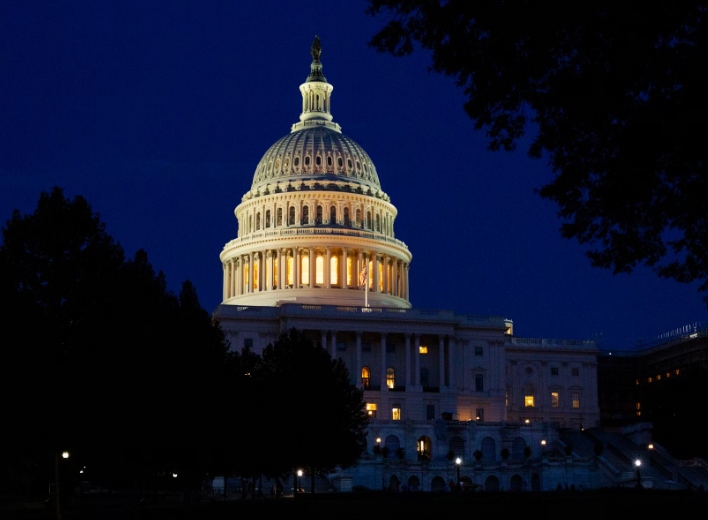FOR IMMEDIATE RELEASEApril 25, 2024Contacts: Ashley Sullivan, ashley.sullivan@weact.org, & Jama Joseph, jama.joseph@weact.org
WASHINGTON – The Clean Air for the Long Haul cohort (CAFLH) acknowledges the final power plant rules to drive down emissions and pollutants announced by the U.S. Environmental Protection Agency (EPA) today. These updates, especially the Greenhouse Gas Standards for Fossil Fuel-Fired Power Plants and the Mercury and Air Toxics Standards (MATS) for coal-fired power plants are much awaited, and will cut carbon emissions and deadly air pollution from the sector. However, the inclusion of CCS threatens to extend the harms posed by fossil fuels to environmental justice communities. We seek to achieve meaningful pollution reductions and a just renewable energy transition, removing the constant threat of these facilities over our communities. We also continue to reiterate the need for ensuring an appropriate environmental justice framework and cumulative impact analysis for the supplementary rule on existing gas.
The CAFLH cohort had this to say of the new standards:
“The reality is that the poorest, non-white regions across the country have been treated for too long as sacrifice zones for the fossil fuel industry. We are pleased to see key actions taken to strengthen the MATS, which had not been updated in over a decade. Stricter standards for the largest offenders – lignite – burning power plants and requiring continuous emissions monitoring systems will go a long way. This will help to improve the health of our children and fenceline communities which hold an outsized risk of the harmful health impacts such as asthma, lung, cardiovascular disease, brain development impairment, and cancer, and more.
Likewise, we acknowledge the progress the White House and the EPA has made to address environmental justice concerns in the final GHG power plant standards, which the ‘regulatory impact analysis projects will reduce 1.38 billion metric tons of carbon pollution overall through 2047.’ We celebrate the removal of co-firing natural gas with hydrogen as a system for emissions reduction for new gas plants, as this marks an important recognition of the harms EJ groups have shared about this approach, especially for our communities.
We continue to underscore our stance on CCS not being an appropriate emissions reductions compliance technology. CCS potentially increases co-pollutant emissions, and it remains an unproven technology not necessarily resulting in the level of CO2 reductions required to meet our climate goals.
‘CCS will once again result in our communities suffering the burden and the risk, as the pipelines and storage facilities will be imposed on those who already suffer from other environmental injustices. Only carbon reduction technologies that eliminate the use of carbon should be required to achieve true environmental justice.’ – Rayan Makarem, CleanAirNow
“We applaud the removal of co-firing of hydrogen and natural gas as a compliance mechanism and appreciate the overall reductions in GHG that the rule will deliver. We appreciate the inclusion of guidelines for meaningful engagement with impacted communities, but remind EPA that improved public participation is only half of meaningful involvement. The feedback provided by the people most impacted must be integrated into permitting decisions for it to be meaningful. Until this happens, host communities and EJ populations will continue to be sacrifice zones.” – Sofia Owen, Senior Attorney, Alternatives for Community & Environment
‘Efforts to curb emissions must include the Gulf Coast regarding climate actions and solutions…We cannot afford to fast-track questionable solutions that add new problems while ignoring existing industrial concerns that can be multiplied by extreme weather events. We urge the EPA to exercise its authority to ensure environmental protection for our communities and not leave Texas residents behind.’ – Mrs. Ana Parras, Co-Director, Texas Environmental Justice Advocacy Services (TEJAS)
We remain adamant that our priorities and voices should be centered in the supplemental rule for existing gas plants to remedy cumulative impacts, achieve mandatory emissions reductions, and a transition to clean renewable energy. We continue our call for urgency and accountability on the completion of the supplementary rule on existing gas and we look forward to working with the EPA to help shape standards that tackle climate change and advance environmental justice.”
# # #
Clean Air For The Long Haul, a nationwide coalition of environmental justice groups, coordinates federal rulemaking campaigns, centering overburdened communities, to reduce air pollution from power plants, cars, and trucks. The coalition seeks to catalyze the environmental justice movement through federal emissions reductions targeting United States power and transportation sectors. Coalition member organizations include: Alternatives for Community and Environment, Clear Air Now, Coalition of Community Organizations, Deep South Center for Environmental Justice, Duwamish River Community Coalition, Green Door Initiative, New Jersey Environmental Justice Alliance, South Bronx Unite, Texas Environmental Justice Advocacy Services, WE ACT for Environmental Justice, West End Revitalization Association, and Wisconsin Green Muslims.





